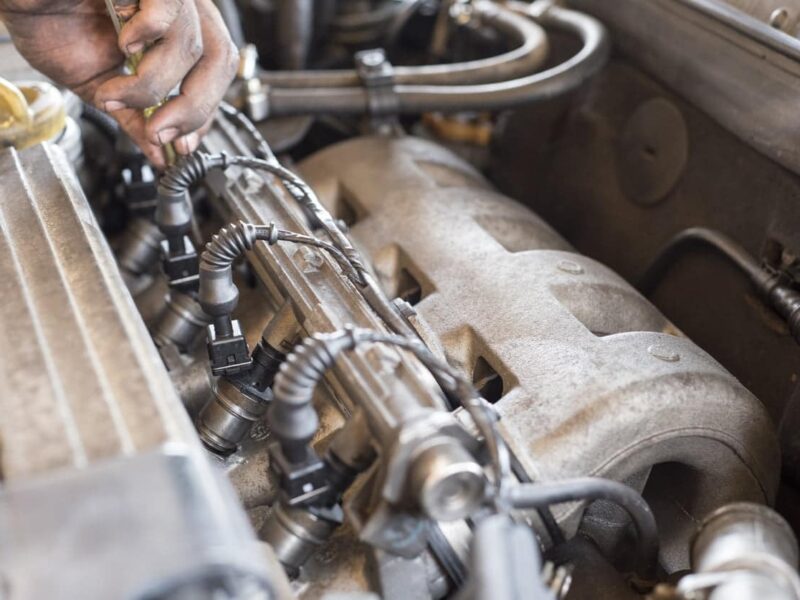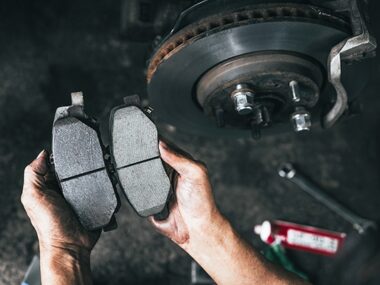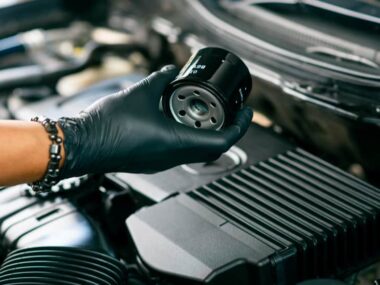How Fuel Injectors Power Your Vehicle Engine
The fuel injector is a critical component in modern automotive engines, serving as the precise mechanism that delivers fuel into the combustion chamber. Its primary function is to atomize the fuel into a fine mist, which then mixes with air to ensure efficient combustion. This process is essential for maximizing engine performance, fuel efficiency and minimizing emissions.
By regulating the amount of fuel injected based on the engine’s needs, fuel injectors help maintain smooth engine operation, contribute to better acceleration and reduce overall fuel consumption. This meticulous delivery of fuel ensures that the engine runs efficiently and meets emission standards, making the fuel injector an unsung hero in the quest for optimal vehicle performance.
However, fuel injectors are not immune to problems. Over time, they can become clogged or malfunction, leading to a range of issues such as rough idling, poor acceleration or increased fuel consumption. Regular maintenance, including using high-quality fuel and periodically cleaning the injectors, can help prevent such problems.
Additionally, keeping an eye out for signs of injector issues-like a check engine light or unusual engine noises-can help catch and address problems early. Understanding and maintaining fuel injectors is crucial for anyone who wants to ensure their vehicle remains in top condition, highlighting the importance of this small but mighty component in the engine’s ecosystem.
Fuel injectors play a pivotal role in your engine’s performance. They are responsible for injecting the right amount of fuel into the combustion chamber, ensuring optimal performance, fuel efficiency and lower emissions. Without a properly functioning fuel injector, your vehicle might suffer from poor fuel economy, reduced power and increased emissions.
How Do Fuel Injectors Work?
Let’s delve into the mechanics of how fuel injectors operate. A fuel injector uses a nozzle to spray a fine mist of fuel into the engine’s intake manifold or directly into the combustion chamber. This mist is then mixed with air and ignited by the spark plugs. The precision with which the fuel injector delivers this mist is crucial for efficient combustion and smooth engine performance.
Types of Fuel Injectors
Fuel injectors come in several types, each designed to meet specific needs and performance criteria. The most common types include:
- Port Fuel Injectors: These injectors spray fuel directly into the intake manifold, where it mixes with air before entering the combustion chamber. This type of fuel injector is common in many modern vehicles.
- Direct Fuel Injectors: These injectors spray fuel directly into the combustion chamber. This method offers better fuel efficiency and performance, as it allows for a more precise control of the fuel-air mixture.
- Sequential Fuel Injectors: These injectors fire in a specific sequence, allowing for more precise control of fuel delivery. This type is commonly used in high-performance engines.
Signs of a Failing Fuel Injector
A failing fuel injector can cause a range of problems, from poor engine performance to increased emissions. Here are some signs that your fuel injector might be on the fritz:
- Rough Idling: If your engine is idling roughly or unevenly, it could be a sign that one or more of your fuel injectors is malfunctioning.
- Poor Acceleration: A decrease in acceleration performance can be attributed to a clogged or failing fuel injector.
- Increased Fuel Consumption: If you notice that you’re visiting the gas station more often, it could be due to inefficient fuel delivery caused by a malfunctioning injector.
- Check Engine Light: Modern vehicles have sensors that monitor the performance of various components, including fuel injectors. If there’s an issue, the check engine light will likely come on.
Maintaining and Cleaning Fuel Injectors
To keep your fuel injectors in top shape, regular maintenance is essential. Here are some tips to ensure your injectors remain clean and efficient:
- Use High-Quality Fuel: Low-quality fuel can lead to injector clogs. Opt for high-quality fuel to minimize this risk.
- Add Fuel Injector Cleaner: Fuel injector cleaners are additives that can help keep your injectors clean. Use them as recommended by your vehicle manufacturer.
- Regular Maintenance Checks: Have your fuel injectors checked during regular vehicle maintenance. Mechanics can perform cleaning and diagnostics to ensure everything is functioning properly.
The Future of Fuel Injectors
As technology advances, so do fuel injectors. Innovations in fuel injector technology are paving the way for more efficient and environmentally friendly vehicles. For example, the development of multi-hole nozzles allows for better atomization of fuel, leading to more efficient combustion and reduced emissions.
The Impact of Fuel Injectors on Vehicle Performance
Fuel injectors significantly impact your vehicle’s overall performance. Properly functioning injectors contribute to:
- Improved Fuel Efficiency: Efficient fuel delivery means better mileage and fewer visits to the gas station.
- Enhanced Engine Performance: Well-maintained injectors ensure that your engine operates at peak performance, delivering smooth acceleration and power.
- Reduced Emissions: Accurate fuel delivery helps in achieving complete combustion, which in turn reduces harmful emissions and keeps your vehicle environmentally friendly.
Diagnosing Fuel Injector Problems
Diagnosing issues with fuel injectors can be complex, but understanding common problems can help you troubleshoot. Here’s how to approach diagnosing fuel injector issues:
- Listen for Unusual Noises: If you hear a clicking or buzzing noise coming from the fuel injectors, it could indicate a problem.
- Check for Fuel Leaks: Inspect the area around the injectors for any signs of fuel leakage.
- Perform a Fuel Pressure Test: A drop in fuel pressure can signal injector problems. A mechanic can perform this test to diagnose issues accurately.
Replacing Fuel Injectors
If your fuel injectors are beyond repair, replacement might be necessary. Replacing fuel injectors involves:
- Removing the Old Injectors: The old injectors must be carefully removed from their mounting positions.
- Installing New Injectors: New injectors are installed in the same positions as the old ones.
- Testing the New Injectors: Once installed, the new injectors should be tested to ensure they are working correctly.
Cost Considerations
The cost of fuel injector replacement can vary depending on several factors, including the make and model of your vehicle and the type of injectors required. Generally, replacing fuel injectors can be a significant expense, but it’s essential for maintaining your vehicle’s performance and longevity.
Fuel injectors are a critical component of your vehicle’s engine, playing a key role in ensuring smooth performance, fuel efficiency and reduced emissions. Understanding how fuel injectors work, recognizing signs of problems and knowing how to maintain and replace them can help you keep your vehicle running at its best. Whether you’re a car enthusiast or just a driver who wants to ensure their vehicle runs smoothly, having a good grasp of fuel injectors is essential for optimal vehicle performance.
Frequently Asked Questions
What does a fuel injector do?
A fuel injector delivers a precise amount of fuel into the engine’s combustion chamber or intake manifold, ensuring efficient combustion and optimal engine performance.
How often should fuel injectors be cleaned?
Fuel injectors should be cleaned every 30,000 to 60,000 miles, depending on driving conditions and fuel quality.
What are common signs of a faulty fuel injector?
Common signs include rough idling, poor acceleration, increased fuel consumption and the check engine light coming on.
Can I clean fuel injectors myself?
Yes, using fuel injector cleaning additives in your gas tank can help, but more thorough cleaning typically requires professional equipment.
How long do fuel injectors last?
Fuel injectors generally last between 50,000 and 100,000 miles, depending on the vehicle and maintenance practices.
What causes fuel injectors to clog?
Fuel injectors can clog due to dirt, debris or residue from low-quality fuel or contaminants in the fuel system.
Are fuel injector replacements expensive?
The cost of replacing fuel injectors varies by vehicle make and model but can be a significant expense. It’s best to consult a mechanic for an accurate estimate.
How do I know if my fuel injectors need replacing?
Signs of needing replacement include persistent engine issues despite cleaning, significant performance drops and persistent fuel system warnings.
Can faulty fuel injectors cause engine damage?
Yes, faulty fuel injectors can lead to poor engine performance, increased wear and tear and potentially damage other engine components.
What type of fuel injector is best for my car?
The best type depends on your vehicle’s specifications and performance needs. Consult your vehicle’s manual or a professional mechanic for recommendations.






